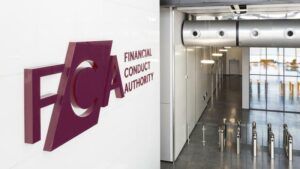PA Future spoke to Kate Turner, global head of responsible investment at First Sentier Investors (FSI), who explained what investors can learn from the firm’s recent Modern Slavery and Remediation report.
The report uncovers how investors can support investee companies with identifying human rights impacts and providing remedy to those impacted.
This comes as this year’s CCLA Modern Slavery UK Benchmark 2024 revealed although more UK companies are disclosing modern slavery in their operations or supply chains, not enough is being done to address and remedy issues when they are identified.
FSI engages with companies globally and works closely with the Sustainable Investment Institute – the firm’s joint venture with MUFG – that publishes thought leadership on topics such as modern slavery. Alongside this, Turner is the chair Investors Against Slavery and Trafficking APAC (ISAT APAC).
Why is now the time to publish this report?
The UK’s Modern Slavery Act has been in place since 2015, and we are seeing companies starting to become more mature in their approach. This maturity increases the chances of finding issues in supply chains, which was evident in the CCLA benchmark report that found 30 companies disclosed finding modern slavery in its operations.
At FSI, we collect statistics on how many companies we’ve engaged with and how many companies are disclosing incidents each year. We are seeing more incidents each year because we are engaging with more companies rather than companies getting better at identifying issues.
This report helps set up companies and investors for success in terms of what their roles and responsibilities are in the remediation process.
In light of the findings from CCLA’s Modern Slavery UK Benchmark 2024, why do you think there is a lack of support provided to human rights victims? How does the report push investors in the right direction to increase remediation success?
The same way CCLA use the ‘Find it, Fix it and Prevent it’ as a human rights framework – encouraging investors to identify issues, remediate them, and take preventative measures – ISAT APAC uses this same approach towards slavery and trafficking.
Typically, we see lots of companies get stuck in or be completely focused on the ‘Find it’ stage. This could mean companies are developing its own modern slavery or ethical sourcing policies and procedures, mapping out supply chains, and doing audits.
There is lots to work through in this stage and many companies tend to get stuck here. I find that many investors focus on this stage because modern slavery is such a complex, systemic issue, and it is hard to measure success or progress.
This means that many investors and companies focus on more tangible issues, such as if a company develops a policy or commits to the United Nations Global Compact (UNGC). So, although it is good focus for engagement, it does not necessarily do anything to improve the lives of victims of modern slavery, and it does not prepare companies to address an issue when it does arise.
In our report, we looked for case studies of good practice, and although there more than we expected to find, it was still low. Yet, the aim of the report is to shift the focus from this ‘Fix It’ stage so that investors and companies are well prepared to effectively provide or enable remedy, and then take preventative measures once the issue has been overcome.
Where do the challenges lie in this form of engagement?
Engagement is a really important tool in the toolbox with modern slavery, because with 50 million victims, it sits in the supply chains of every single company in the world.
All investors are exposed to it and cannot exclude their way out of it. A big challenge is the reluctance of companies to share information, particularly if they have an investigation ongoing as some facts may have to remain confidential.
This report is borne out of the experience that we have had over years of engagement with companies that have modern slavery issues. We have seen companies either shut down conversations, provide legally formulated responses that place the blame elsewhere, or assure us that sufficient remedy has been provided although the numbers do not stack up.
The most common responses we get from companies that have a modern slavery issue is the response: “There was an issue with the supply chain, but we have cut ties with that supplier. The issue is fixed.” This is the worst action that can be taken because it does not enable remedy for the victim.
The report looks into pre-issue stages and how investors can engage with companies to set them up for success beforehand.
How does the report help investors approach companies on these issues?
Approaching companies that have had allegations of an incident is very tricky. Over the years, we have found that companies are more reluctant to speak about human rights than about, for example, climate change.
We have broken it down for investors, providing a cheat sheet of actions for before, during and after the engagement process. Investors should be setting expectations for what companies should be doing, for example, suppling a well-functioning grievance mechanism.
An important role investors have is to normalise finding and disclosing issues. There is a reluctance of companies to disclose when modern slavery issues are found, let alone effectively remediate because companies are worried about the ramifications. This must be normalised to solve the problem.
Investors should convey to companies that it is a positive thing if they are finding issues, because these issues are hidden everywhere in supply chains. It is best to identify them, provide remedy and take preventative measures so they are not found again. All in all, investors can guide them through the process.
What influence do you hope the report will have on the investment community? What are your future hopes for the eradication of modern slavery?
Although I am unlikely to see the eradication of modern slavery in my lifetime, I hope the investment community will start centering their actions on what practical steps they can take to address modern slavery issues rather than burying themselves in disclosure and paperwork.
I would like to see investors holistically tackle modern slavery with other systemic issues, such as climate change, conflict, or deforestation. We often think of these issues solo, however, by thinking of them separately, we are missing opportunities to potentially leverage synergies or minimise trade-offs.
Overall, it remains important for investors to have a deep knowledge on modern slavery, and more broadly, to understand the interconnectedness between modern slavery and other issues.








